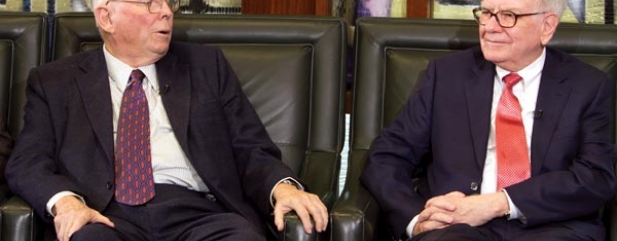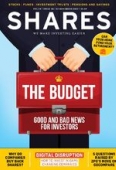Archived article
Please note that tax, investment, pension and ISA rules can change and the information and any views contained in this article may now be inaccurate.
Why do companies buy back shares?

Listed companies with strong competitive positions typically have pricing power, which in turn enables them to generate healthy margins and crucially, strong cash flow. This cash can be returned to shareholders through two mechanisms, dividends and share buybacks.
Such capital allocation decisions are amongst the most important decisions management teams make on behalf of shareholders. Yet rather worryingly, share buybacks are often not sufficiently understood by investors.
Which firms are buying back shares?
A large number of public companies are engaged in major share buybacks, among them consumer goods giant Unilever (ULVR), retiring €5bn of equity, and DIY outfit Kingfisher (KGF), which has returned more than £400m to shareholders under a £600m repurchasing buyback splurge, above and beyond regular dividends.
Others include heating and plumbing products distributor Ferguson (FERG), which has launched (3 Oct) a £500m share buyback reflecting management’s confidence in the company’s prospects and cash generation. Also noteworthy is plastics packaging provider RPC (RPC), which has delivered 24 consecutive years of dividend growth and is returning up to £100m to shareholders via a buyback.
Why do companies repurchase stocks?
There are four strong arguments in favour of buybacks, which have played a part in the elongated bull markets on both sides of the Atlantic. The first posits that if a company is generating surplus cash, it can return it to shareholders and let them decide what to do with it, rather than squander funds on a risky acquisition or capacity increases or run an inefficient balance sheet with any cash balance earning scant return at low interest rates.
Secondly, buybacks can work for investors depending on their tax situation, and whether they prefer to be taxed on a capital gain (buyback) or dividend (income). The third ‘pro’ is that investors who choose to retain their shares during a buyback programme will have an enhanced stake in the company and thus be entitled to a bigger share of future dividends, assuming the payout is maintained.
Fourthly, buybacks imply a management team feels a company’s shares are undervalued. Buyback announcements often act as a positive share price catalyst, as they are viewed as a vote of confidence in a company’s near and long-term trading prospects.
Undervalued Vertu?
In the smaller companies arena, one noteworthy example is car dealer Vertu Motors (VTU:AIM), whose share price has fallen on fears over increasingly challenging market conditions. During the half to August, the industry consolidator steadfastly refused to overpay for acquisitions, instead buying back £1.6m of its own shares. This was the first occasion on which Vertu had bought back shares since 2008.
Vertu has a formidably strong balance sheet and believes it is positioned to consolidate the market over the next few years as weaker competition flounders. Alongside the interims (11 Oct), Vertu’s disciplined board extended its buyback programme by up to a further £3m, share repurchases to be effected ‘within certain pre-set parameters’.
Why buybacks irk investors
There are numerous reasons why investors give the thumbs down to share buybacks. Buybacks can be used to massage earnings per share (EPS) by reducing the share count at limited cost, which could be used to trigger management bonuses or stock options.
These transactions have the mechanical effect of increasing EPS, but not the overall profitability of the business, since the number of shares in issue reduces. There is also a risk that companies buy back shares using debt, potentially weakening their balance sheets and competitive position in the long term.
History shows companies have a habit of buying stock back during bull markets (when their stock tends to be more expensive) and not doing so during bear ones (when their stock tends to be much cheaper). Buybacks in the US peaked in 2007 and collapsed in 2008 and 2009 only to accelerate again in 2011 and 2012. Last but not least, buybacks do not always work.
Investors should heed the words of legendary investor Warren Buffett from his 2012 letter to Berkshire Hathaway shareholders. ‘Charlie [Munger] and I favour repurchases when two conditions are met: first, a company has ample funds to take care of the operational liquidity and needs of its business; second, its stock is selling at a material discount to the company’s intrinsic business value, conservatively calculated.’
Well-followed UK fund manager Terry Smith has previously argued that management should be required to justify share buybacks by reference to the price paid and the implied return and compare this with alternative uses for the cash.
Smith has stressed investors should analyse share buybacks on exactly the same basis as they would if the company bought shares in another company. Moreover, the pugnacious East Londoner argues investors should use return on equity to analyse the effect of share buybacks, rather than EPS fluctuations.
Interestingly in the summer, global premium automotive distributor Inchcape (INCH), famed for its strong free cash flow generation, dividends and stock repurchases, decided (27 July) not to extend its share buyback programme.
Perhaps mindful of the wisdom of master investor Buffett, Inchcape explained that it had deployed cash on acquisitions, while management also recognised the need to invest to accelerate Inchcape’s organic growth.
Having weighed up the arguments carefully, those investors keen to harness the benefits of buybacks can do so through dedicated ETFs. They include US-listed PowerShares Buyback Achievers Portfolio, which selects stocks based on short-term repurchasing activity, and UK-listed iShares US Equity Buyback Achievers UCITS ETF (BACS).
Buybacks can help to create shareholder value through the efficient deployment of cash and one company with a good track record here is clothing retailer Next (NXT).
Alongside half year results (14 Sep), Next restarted its share buyback, the operational cash flow of the business remaining robust despite the myriad challenges facing the weather sensitive apparel retail sector and importantly, with the share price weak relative to history.
As confirmed with its recent third quarter update (1 Nov), on top of ordinary dividends and four special dividends of 45p this year, Next will have bought back £50m worth of shares by the end of this financial year. Evidently, chief executive Simon Wolfson and finance director Amanda James view the shares as undervalued.
The important point to note – in line with Buffett’s guidance – is that Next is generating more cash than it needs to invest in capital expenditure, so key to maintaining competitive advantage, even after shelling out these special distributions.
Investors keen to understand the balance management needs to strike between special dividends and buybacks should refer back to Next’s full year results statement from March. At the time, the share price was trading at a relatively low multiple of future earnings, leaving some to question whether the company would be better off buying back shares, rather than paying special dividends.
As Simon Wolfson explained: ‘The last time the company was in a similar situation was in 2008. At that time we were suffering from a combination of tough economic conditions, weakening currency rates and some internal product range issues.
‘Profits were forecast to decline in the year ahead and there was much uncertainty in the wider economy as the credit crunch took hold. We took the decision at that time to halt our buyback programme.
‘In hindsight, we were wrong to not buy back shares in 2008 and we hope that hindsight will prove us wrong, on this particular decision, once again! But at this time of significant uncertainty, we feel that the decision to buy back shares is best left to shareholders themselves.
‘And of course, shareholders can always use their special dividends to buy shares for themselves. Perhaps we have been overly cautious but companies rarely fail for being prudent with their shareholders’ money and in uncertain times such prudence is all the more important.
‘In the long term share buybacks remain our preferred route for returning capital to shareholders and we intend to return to them when market and trading conditions make it appropriate.’
Important information:
These articles are provided by Shares magazine which is published by AJ Bell Media, a part of AJ Bell. Shares is not written by AJ Bell.
Shares is provided for your general information and use and is not a personal recommendation to invest. It is not intended to be relied upon by you in making or not making any investment decisions. The investments referred to in these articles will not be suitable for all investors. If in doubt please seek appropriate independent financial advice.
Investors acting on the information in these articles do so at their own risk and AJ Bell Media and its staff do not accept liability for losses suffered by investors as a result of their investment decisions.
Issue contents
Big News
- The winners and losers on the stock market from Hammond’s Budget
- Lower living costs and higher wages centre stage at this year’s Budget
- What's going on with Royal Mail?
- Accrol: back and kicking up a stink
- Black Friday to bring further retail woe
- EasyJet takes advantage of rivals’ struggles
- Worldwide dividends surge in record high third quarter
- New clean energy fund heading to the market with 4.5% yield
- Ocado growth story turning sour
- Boku hopes to make its mark

 magazine
magazine








